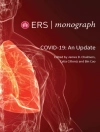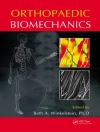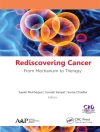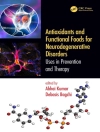What should you do when you have restricted resources? Written by the most prominent experts from the North and the South countries, this book offers a unique complement to classical hematology and oncology textbooks focusing on specific issues concerning cancers in tropical areas. It presents a thorough review of the specific biological, clinical and therapeutic characteristics of cancers in tropical areas, including their background and epidemiology, public health consequences and transcultural mediation. As such, it will be a valuable resource for all hemato-oncology practitioners, students of oncology or tropical medicine, and other physicians involved in the care of cancer patients who live in tropical countries.
表中的内容
Introduction.- Foreword.- Introductive chapter: The context of tropical Medicine.- PUBLIC HEALTH ASPECTS.- Geography and socioeconomics of the tropical areas.- Epidemiology of cancer in the tropical areas.- Management of cancers in countries with limited resources.- Access to Expensive drugs and Ethical considerations.- Precarity, social organization and outcome on cancer management in the tropical areas.- Cancer screening and prevention in the tropical areas.- Pathology and cancer research.- Cancer perception in different cultures of the tropical areas ; Cross-cultural mediation.- Cancer clinical trials in the tropical area.- BASIC SCIENCE BACKGROUND.- Spectrum of cancers due to micro-organisms (virus, bacteria, parasites).- HIV and cancer; scientific background: Epidemiology and mechanism of carcinogenesis of the retrovirus HIV.- HTLV1 and cancer; scientific background: Epidemiology and mechanism of carcinogenesis of the retrovirus HTLV1.- Hepatitis virus scientific background : Epidemiology and mechanism of carcinogenesis of the virus HBV.- Hepatitis virus scientific background : Epidemiology and mechanism of carcinogenesis of the virus HCV.- EBV and cancer; scientific background: Epidemiology of EBV and mechanisms of carcinogenesis.- HPV and cancer; scientific background: Epidemiology and mechanism of carcinogenesis of the virus HPV.- HHV8 and cancer; scientific background: Epidemiology and mechanism of carcinogenesis of the virus HHV8.- Parasites and cancer: Epidemiology and mechanism of carcinogenesis of schitosoma.- Helicobacter and cancer: Epidemiology of Helicobacter Pylori and mechanisms of carcinogenesis.- HEMOPATHIES.- ATL (lymphoma et leukemia).- Extranodal NK/T-cell lymphoma, nasal type.- High-grade lymphomas: Diffuse large B-cells lymphomas (with a special paragraph on CNS lymphomas).- High-grade lymphomas: Burkitt lymphoma; Physiopathology and treatment of EBV associated lymphomas.- Mantle cell lymphoma.- Indolent lymphomas, follicularlymphomas, HVC associated marginal zone B-cell lymphomas and Waldenström disease.- Chronic myeloproliferative syndroms.- Myelodysplasic syndroms.- Acute leukemias.- CANCERS.- Breast cancer.- Cervix cancer.- Oesophageal cancer.- Gastric cancer.- Colorectal cancer.- Hepatocarcinoma.- Cholangiocarcinoma.- Pancreas cancer.- Lung cancer.- Head and neck cancers.- Bladder cancer.- Prostate cancer.- Renal cancer.- Cutaneous cancers (including melanoma).- Ovarian cancer.- Endometrial cancer.- Cancer of the penis, anus and vulva.- Gestational trophoblastic tumors.- CNS tumors.- Thyroid cancer.- Uncommon cancers.- CANCER TREATMENT IN TROPICAL AREAS.- Pediatric oncology.- Geriatric oncology.- Surgery.- Radiotherapy.- Medical treatments (chemotherapy, hormone therapy, targeted drugs).- HIV and cancer treatments.- Supportive cares.- Palliative cares.
关于作者
Jean-Pierre Droz was formerly Chairman of the Department of Medicine at the Institut Gustave-Roussy, Villejuif and at the Centre Léon-Bérard in Lyon (France). Since January 2010 he is a physician of medical oncology at the University Hospital in Cayenne (French Guiana) and is teaching at the French Guiana and West Indies University Medical School. His major subjects of clinical research are Genito-Urinary tumors, Germ-Cell Tumors and Prostate Cancer, Geriatric Oncology and Endocrine Tumors medical treatment.
Bernard Carme is a Professor of medicine, specialist in Parasitology and of tropical medicine, Pitié Salpétrière University Hospital, University of Paris VI (France), University Hospital and Faculty of Medicine in Brazzaville, Republic of Congo. Since 1996, he is the head department in Cayenne university Hospital (French Guiana) and Professor at the Medical School, French West Indies and French Guiana University.
Pierre Couppié is a Professor of Dermatology at the French Guiana and West Indies University Medical, head of the service of Dermatology and Chairman of the Department of Medicine at the Cayenne University Hospital since 1997.
Mathieu Nacher is a Professor of Epidemiology and Public Health at the French Guiana and West Indies University Medical School. He is the director of the French Guiana and West Indies Clinical Investigation Center. His main focus of interest is the interactions between nematode infections and malaria, and HIV epidemiology.
Catherine Thiéblemont is a Professor of Hematology in the Paris VII- University, France – and the head of the Hemato-Oncology Department in the Hospital Saint-Louis, which is dedicated to the management of patients with lymphoma, with more than 400 patients newly diagnosed and managed per year (Paris, France since December 2009). She is an active member of the Lymphoma Study Association (LYSA) and of the International extranodal Lymphoma study group(IELSG).












